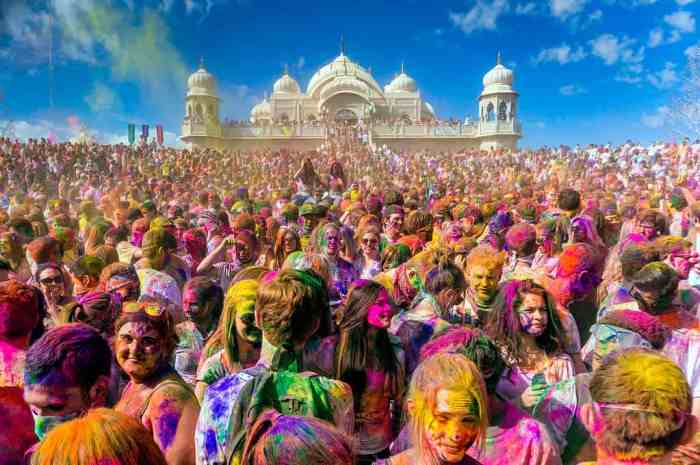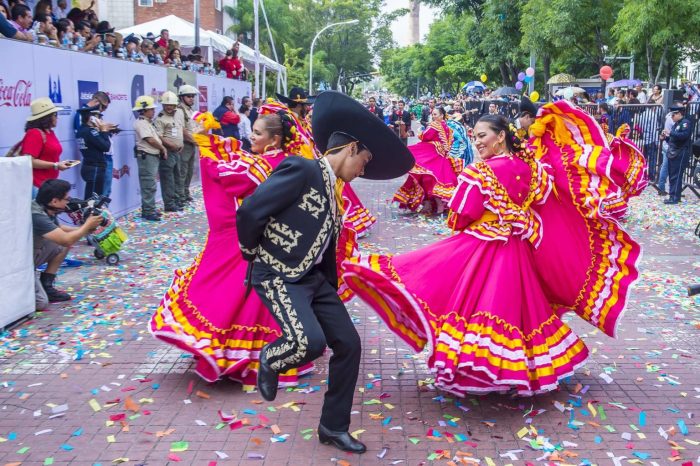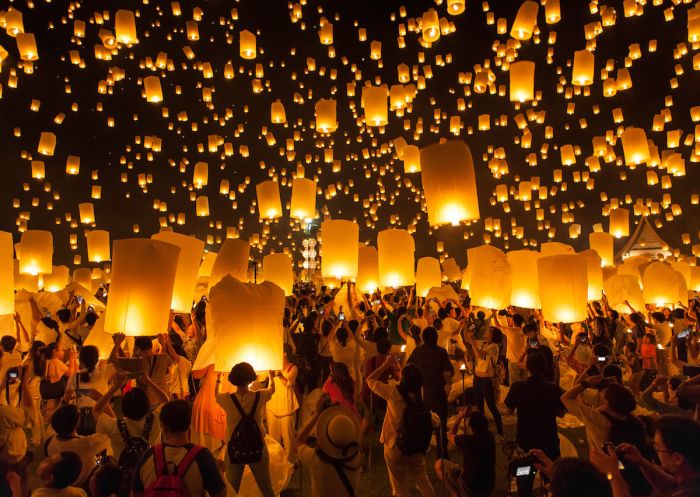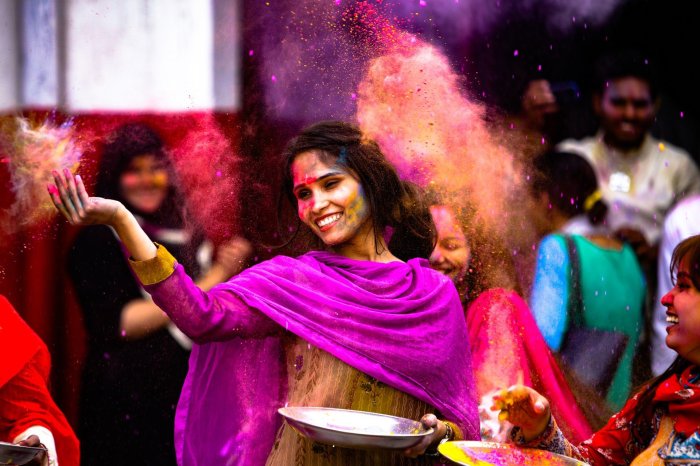Immerse yourself in the vibrant tapestry of global culture with the best cultural festivals worldwide. From ancient traditions to modern innovations, these festivals offer a unique lens into the diversity, heritage, and spirit of nations. Embark on an extraordinary journey that celebrates human creativity, fostering understanding, and preserving our cultural legacy.
Cultural festivals are a melting pot of colors, sounds, and experiences that captivate the senses and ignite the soul. They provide a platform for cultural exchange, fostering mutual respect and appreciation. Join us as we explore the economic and social impact of these events, their role in preserving traditions, and the emerging trends shaping their future.
Cultural Festivals Around the World

Cultural festivals are vibrant celebrations that showcase the unique traditions, customs, and heritage of different regions. These festivals offer a glimpse into the diverse cultural tapestry of the world, providing opportunities to experience traditional music, dance, art, and cuisine.
From ancient rituals to modern artistic expressions, cultural festivals have played a significant role in shaping cultural identities and fostering a sense of community. They serve as platforms for cultural exchange, preserving and transmitting traditions from one generation to another.
Asia
* Holi (India): A vibrant festival of colors, Holi marks the arrival of spring and celebrates the triumph of good over evil. Participants throw colored powder and water at each other, creating a riot of colors and joy.
* Songkran (Thailand): The Thai New Year festival, Songkran, is celebrated with water fights and the traditional pouring of scented water over elders as a sign of respect and blessing.
* Chinese New Year (China): The most important festival in the Chinese calendar, Chinese New Year is celebrated with fireworks, dragon dances, and family gatherings. It signifies the start of a new year and is believed to bring good luck and prosperity.
Europe
* Oktoberfest (Germany): The world’s largest beer festival, Oktoberfest is held in Munich, Germany, and attracts millions of visitors each year. It features traditional Bavarian music, food, and, of course, plenty of beer.
* Carnaval (Brazil): A massive street party held before Lent, Carnaval is famous for its elaborate costumes, samba music, and energetic parades. It’s a celebration of life and culture that brings together people from all walks of life.
* Edinburgh Fringe Festival (Scotland): The largest arts festival in the world, the Edinburgh Fringe Festival features a diverse range of performances, including theater, comedy, dance, and music. It attracts artists and audiences from around the globe.
North America
* Mardi Gras (New Orleans, USA): A pre-Lenten celebration, Mardi Gras is known for its colorful parades, elaborate floats, and lively jazz music. It’s a time for revelry and indulgence before the somber season of Lent.
* Powwow (Native American): A gathering of Native American tribes, powwows are traditional events that feature singing, dancing, drumming, and storytelling. They celebrate cultural heritage and foster a sense of community among Native American peoples.
* Burning Man (Nevada, USA): A unique and transformative festival held in the Black Rock Desert, Burning Man is an artistic expression that emphasizes community, self-reliance, and radical self-expression.
Diversity and Inclusivity
In the realm of cultural festivals, diversity and inclusivity play a pivotal role in fostering a truly enriching and transformative experience. Festivals serve as platforms for showcasing the vibrant tapestry of cultures from around the globe, promoting cultural exchange, understanding, and appreciation.
Experiencing the world’s diverse cultural festivals enriches one’s perspective. If adventure calls, consider exploring scuba diving locations worldwide. Immerse yourself in underwater wonders and encounter marine life in its natural habitat. Upon returning to land, delve back into the vibrant tapestry of cultural festivals, where traditions, music, and art intertwine to create unforgettable memories.
By embracing diversity, festivals provide a space for marginalized voices to be heard and celebrated. They offer a platform for underrepresented cultures to share their unique traditions, art forms, and perspectives, fostering a sense of belonging and empowerment. Inclusivity ensures that everyone, regardless of their background or identity, feels welcome and valued.
From the vibrant colors of Holi in India to the lively rhythms of Carnival in Brazil, cultural festivals worldwide offer a captivating glimpse into diverse traditions. While not directly related, these events share a common thread of celebration and community.
Similarly, exploring scuba diving locations immerses one in the wonders of the underwater world, connecting with the beauty and diversity of marine life. Both experiences enrich our understanding of the human experience and the wonders of the natural world.
Examples of Inclusive Festivals
- Edinburgh Fringe Festival: Renowned for its vast and diverse program, the Edinburgh Fringe Festival showcases a wide range of performances from all corners of the world, fostering cultural exchange and inclusivity.
- Rio Carnival: A vibrant celebration of Brazilian culture, the Rio Carnival welcomes people from all walks of life, showcasing the rich traditions and diversity of Brazil’s many ethnicities.
- Diwali Festival of Lights: A festival of light and joy celebrated by Hindus, Sikhs, and Jains worldwide, Diwali promotes cultural understanding and inclusivity by sharing its traditions and symbolism with the broader community.
Economic and Social Impact

Cultural festivals have a significant economic and social impact on local communities and businesses.
Economically, festivals can boost tourism, create jobs, and stimulate local businesses. For example, the Edinburgh Fringe Festival, one of the largest arts festivals in the world, attracts over 2.5 million visitors annually, generating an estimated £120 million for the local economy. Festivals can also create employment opportunities in various sectors, including hospitality, transportation, and retail.
Socially, festivals foster community spirit, preserve traditions, and promote tourism. They provide a platform for people to come together, celebrate their culture, and share experiences. Festivals can also help preserve cultural traditions and heritage by showcasing traditional arts, music, and dance.
Sustainability and Environmental Considerations
Cultural festivals can have a significant environmental impact, from waste generation to energy consumption. However, festivals can also be used as a platform to promote sustainability and raise awareness about environmental issues.
By implementing sustainable practices, festivals can reduce their environmental footprint and encourage attendees to adopt eco-friendly habits. Some strategies for promoting sustainability at festivals include:
- Using reusable materials for decorations and infrastructure
- Offering recycling and composting options for waste
- Using energy-efficient lighting and sound systems
- Promoting public transportation and carpooling to reduce traffic and emissions
Raising Awareness about Environmental Issues
Festivals can also use their platform to raise awareness about environmental issues and encourage eco-friendly practices. By hosting workshops, talks, and exhibits on environmental topics, festivals can educate attendees about the importance of sustainability and inspire them to make changes in their own lives.
Examples of Sustainable Festivals, Best cultural festivals worldwide
Many festivals around the world have successfully implemented sustainable initiatives. For example, the Glastonbury Festival in the UK has banned single-use plastics, installed solar panels, and implemented a comprehensive waste management system. The Burning Man festival in the US has a “Leave No Trace” policy and encourages attendees to bring their own reusable water bottles and food containers.
Cultural Preservation and Revitalization

Cultural festivals play a crucial role in preserving and revitalizing traditional arts, crafts, and customs. They provide a platform for communities to showcase their unique heritage, passing on cultural knowledge and skills to future generations.
Festivals create opportunities for cultural exchange and collaboration, fostering a sense of pride and belonging among participants. They also raise awareness about endangered cultural practices, attracting attention and support for their preservation.
Indulge in the vibrant tapestry of the world’s best cultural festivals, where tradition and modernity intertwine. For a truly luxurious experience, consider exploring luxury travel tips that will elevate your festival adventures to new heights. Immerse yourself in the captivating sights, sounds, and flavors of these cultural extravaganzas, creating memories that will last a lifetime.
Examples of Festivals Preserving Endangered Cultural Practices
- The Powwow: An annual gathering of Native American tribes that celebrates traditional music, dance, and storytelling, helping to preserve indigenous cultures and languages.
- The Kumbh Mela: A Hindu pilgrimage festival that attracts millions of devotees, providing a platform for religious rituals and the transmission of ancient spiritual practices.
- The Notting Hill Carnival: A vibrant celebration of Caribbean culture in London, showcasing music, dance, and traditional costumes, contributing to the preservation of Afro-Caribbean heritage in the UK.
Emerging Trends and Innovations

Cultural festivals are constantly evolving to reflect the changing needs and interests of their audiences. In recent years, several emerging trends and innovations have shaped the festival landscape, including the increasing use of technology, social media, and globalization.
Technology and Social Media
Technology and social media have played a significant role in transforming the way cultural festivals are organized and experienced. Online ticketing platforms make it easier for attendees to purchase tickets and plan their schedules. Social media platforms allow festivals to connect with potential attendees, promote their events, and build online communities.
Globalization
Globalization has led to a greater awareness and appreciation of diverse cultures. This has resulted in an increased demand for cultural festivals that celebrate the traditions and heritage of different countries and regions. Festivals are also becoming more international, with artists and attendees traveling from all over the world to participate.
Virtual and Hybrid Festivals
Virtual and hybrid festivals have emerged as a way to reach wider audiences and overcome geographical barriers. Virtual festivals allow people to experience cultural events from the comfort of their own homes. Hybrid festivals combine in-person and virtual elements, offering attendees a flexible and accessible way to participate.
Case Studies and Best Practices: Best Cultural Festivals Worldwide

To gain a deeper understanding of successful cultural festivals, it’s essential to examine in-depth case studies. These studies provide valuable insights into the planning, organization, marketing, and community engagement strategies that have contributed to their success.
By analyzing these best practices, festivals worldwide can learn from the experiences of others and implement strategies that will enhance their own events, fostering cultural diversity, inclusivity, and sustainable growth.
Factors Contributing to Success
- Effective planning and organization, ensuring smooth execution and a positive experience for attendees.
- Strategic marketing campaigns that reach target audiences and generate excitement for the festival.
- Strong community engagement, fostering a sense of ownership and support for the event.
- Innovative programming that showcases diverse cultures and promotes inclusivity.
- Sustainability initiatives that minimize environmental impact and promote responsible practices.
Future of Cultural Festivals

The future of cultural festivals is bright, as they continue to play a vital role in our rapidly changing world. Festivals provide a unique opportunity to celebrate diversity, promote inclusivity, and foster a sense of community. They also have a significant economic and social impact, and can help to preserve and revitalize cultural traditions.
In the coming years, festivals will face a number of challenges, including the increasing cost of production, the need to attract and retain audiences, and the impact of technology. However, there are also a number of opportunities for festivals to grow and evolve. By embracing new technologies, partnering with other organizations, and focusing on sustainability, festivals can ensure their continued success and relevance in the years to come.
Challenges
One of the biggest challenges facing cultural festivals is the increasing cost of production. The cost of everything from venue rental to artist fees has been rising in recent years, and this has put a strain on the budgets of many festivals. In order to remain viable, festivals will need to find ways to reduce costs without sacrificing quality.
Another challenge facing cultural festivals is the need to attract and retain audiences. In a world where there are more entertainment options than ever before, festivals need to work hard to stand out from the crowd. They can do this by offering unique and innovative programming, creating a welcoming and inclusive atmosphere, and promoting their festivals effectively.
Finally, festivals will also need to adapt to the impact of technology. Technology is changing the way that people consume entertainment, and festivals need to find ways to stay relevant in this new landscape. They can do this by embracing new technologies, such as live streaming and virtual reality, and by creating interactive experiences that engage audiences.
Opportunities
Despite the challenges, there are also a number of opportunities for cultural festivals to grow and evolve. One of the biggest opportunities is the use of technology. Technology can help festivals to reduce costs, attract and retain audiences, and create new and innovative experiences.
Another opportunity for cultural festivals is to partner with other organizations. By partnering with other organizations, festivals can share resources, cross-promote their events, and reach a wider audience.
Finally, festivals can also focus on sustainability. By reducing their environmental impact, festivals can make a positive contribution to the community and attract environmentally conscious audiences.
Concluding Remarks
As the world continues to evolve, cultural festivals remain a vital force in preserving our shared heritage and promoting global harmony. They remind us of the beauty of diversity, the importance of tradition, and the power of human connection. By embracing the best cultural festivals worldwide, we not only celebrate the past but also invest in the future, ensuring that our rich cultural tapestry continues to inspire and enrich generations to come.
FAQs
What are the most popular cultural festivals worldwide?
Some of the most renowned cultural festivals include the Rio Carnival in Brazil, the Oktoberfest in Germany, the Holi Festival in India, the Chinese New Year, and the Glastonbury Festival in England.
How can cultural festivals promote diversity and inclusivity?
Cultural festivals provide a platform for different cultures to showcase their traditions, beliefs, and art forms. By embracing diversity, festivals foster understanding, break down barriers, and promote a sense of global community.
What is the economic impact of cultural festivals?
Cultural festivals can have a significant economic impact on local communities. They attract tourists, generate revenue for businesses, and create employment opportunities.